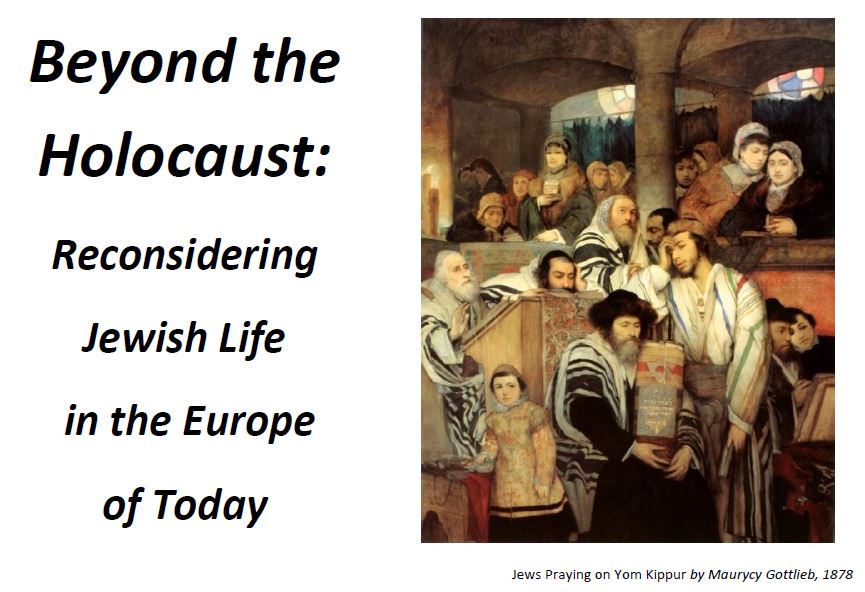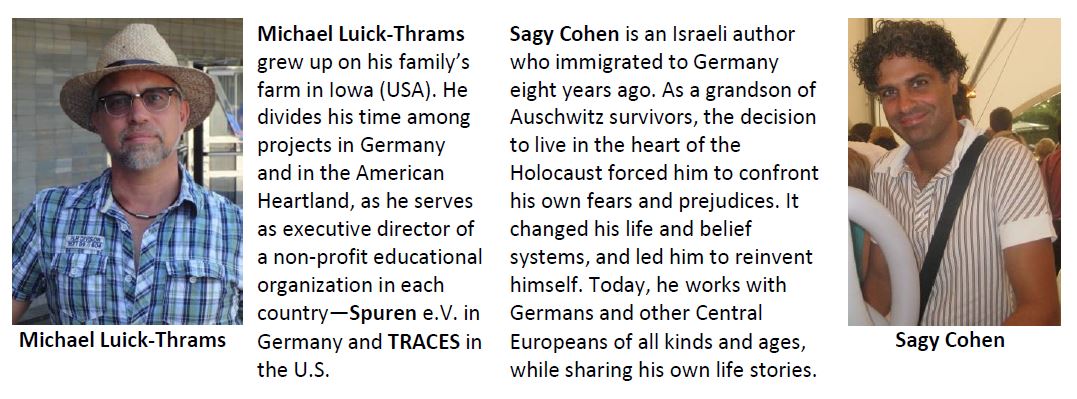Facilitating Encounters and Exchange between Jews and Their Non-Jewish Allies
Jews followed their Roman occupiers to Europe some two thousand years ago. Today, the Romans are gone; the Jews are not—despite the handiwork of the Nazi regime and others motivated by hate. But, the disaster handed to the Jews of Europe by their gentile neighbors ended seven decades ago.
At present, an increasingly integrated, peaceable and prosperous European Union counts a solidly established Jewish minority as one of many stones in a colorful mosaic of cultural diversity. Germany, in particular, watches as Jewish life within its borders revives, not only in numbers but in vitality.
Still, narratives told by both Jews and non-Jews about the relationship between the two groups over the past century or more often hinder new narratives, new ways of relating between the various voices now heard in the Europe of today—including in Germany, a dynamo at the heart of Europe.
This program examines the narratives we mostly subconsciously construct and, over time, repeatedly reinforce simply by believing what we keep hearing ourselves or those closest to us say. A chorus led by group think might afford us a feeling of belonging, but it can also limit, even block our potential.
New narratives are needed—but who should weave them and how should we then live them out?
Project Outline: What
Beyond the Holocaust focuses not on the abstract or political but on the immediate and personal. Its co-facilitators believe that while we all live in a neighborhood, each of us first lives in a house: To make conscious our belief-driven behaviors, then confront and finally change them, we best begin at home. Thus, participants are invited to examine their own roots and lives.
more ... Beyond the Holocaust takes place, typically, from Friday evening through Sunday afternoon, with English and German as working languages*. Over five** sessions the participants share their own (familial) resumes and their biographies, with photos, maps, etc. They also refer to them as part of small- and large-group work, which includes exchanging experiences, ideas, fears, hopes and dreams. At the end of the weekend, each participant shares how she or he intends to carry new awarenesses home, then integrate them into daily life. Those participants who wish may stay in contact, post-workshop, in order to support each other’s Next Step: periodic “reunions” facilitate continued action. * Both facilitators speak fluent German but as their workshops attract international audiences English serves as a language open to all, regardless of nationality. Individuals may address the group in their own mother tongues, but must have someone present able to translate to the rest of those present. ** Participants must arrange their own accommodation. Friday evening is “free” yet we encourage those who wish to dine together and to continue the conversations from the workshop into the evening. Plan to spend Saturday evening with the group to watch, then discuss a relevant film. Project Outline: How Beyond the Holocaust co-facilitators, Sagy Cohen and Michael Luick-Thrams, work in tandem with Spuren e.V. Its workshops and books focus on stories, on narrative social history, on three levels: Project Outline: Why Spuren executive director, Michael Luick-Thrams, brings forty years of genealogical, historical and pedagogical experience with him. A great-grandson of a one-time Ku Klux Klan member, he seeks to understand group behavior and the seeds of conflict by examining their roots in individual lives. He is the recent author of his own family-history trilogy, Oceans of Darkness, Oceans of Light: Our Troubles and Treasures in the New World. (For details, see http://2014.traces.org/?page_id=87 ). Holding a doctorate in Modern European History from Humboldt Universität zu Berlin, he facilitates family and individual history research in the context of social history. (See www.roots.TRACES.org .) Dr. Luick-Thrams invites participants to consider the effects on their families and themselves of: Project Outline: Who Project Outline: When and Where Beyond the Holocaust is available as of spring 2015 (through July) and again as of September in Germany. Further workshops and other programming are planned for: For details, or to apply to host or attend a workshop, please contact staff@TRACES.org. Thank you!

